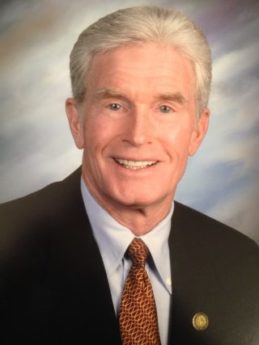HOME | ABOUT US | MEDIA KIT | CONTACT US | INQUIRE
HOME | ABOUT US | MEDIA KIT | CONTACT US | INQUIRE
March 2021
 Ed Yardeni (a Wall Street economist) pointed out last week that the USA’s money supply has exploded and “M2 Is Off the Charts”! M1 (money in circulation) is up $2,943 billion (+74%) and M2 (M1 plus savings deposits in banks) is up $4,069 billion (+26%) just in the last year! Where did all this domestic liquidity come from?
Ed Yardeni (a Wall Street economist) pointed out last week that the USA’s money supply has exploded and “M2 Is Off the Charts”! M1 (money in circulation) is up $2,943 billion (+74%) and M2 (M1 plus savings deposits in banks) is up $4,069 billion (+26%) just in the last year! Where did all this domestic liquidity come from?
For starters the Fed purchased $3 trillion in Treasury securities and mortgage-backed securities during the past 12 months, which in turn has dramatically boosted M2. Essentially, when this much money is readily available it tends to get spent, especially if uncertainty can be reduced and the economic outlook seems brighter. Clearly, the Fed and the U.S. Treasury are working together to provide “whatever it takes” to fuel this ongoing economic recovery.
Eventually all this additional cash sloshing around (within M2) will likely continue to stimulate and eventually accelerate inflation. The Fed has purposely been trying to get headline inflation up to its target rate of 2%; however, productivity enhancements have continued to keep inflation below the Fed’s target. As a result, the Fed has its challenges. Everyone will be watching to see if M2 continues to rise as a result of this seemingly endless quantitative easing combined with the Biden Administration’s recently passed stimulus programs.
Central banks also serve a countercyclical role. When the economy overheats The Fed tries to calm it down. When or if our economy becomes depressed, they try to prop it up, as they continue doing at the moment (and have been doing since China’s Covid-19 first impacted America last year). We have been experiencing very aggressive intervention in the economy and financial markets by the “modern monetary theory” (MMT) practicing duo of the Federal Reserve and the US Treasury. This explains why stocks are at all-time highs and average hourly earnings went up last year during a bad recession. Generous government benefits, including PPP loans, as well as generous employers fueled by ongoing corporate profitability have provided more available cash for stock buyers than was needed for essentials.
Jointly, the Fed and the U.S. Treasury Department have the biggest control over the money supply. The Fed via balance sheet operations creates excess reserves and supports asset prices (excess reserves are part of the monetary base, but not part of M2). Via loan guarantees the U.S. Treasury Department affects the flow of credit in the U.S. economy and pushes up broad measures of the money supply.
What has been going on here is very similar to the deficit spending that happened during World War II. Between 1940 and 1945 deficit spending surged, yet inflation was still somewhat under control as the economy was not operating in normal fashion (as many soldiers were away fighting in the war). However, inflation reached 19.6% in 1947 as the economy began to normalize after the war and all that extra money was floating around. Similarly, I think there will be a notable pickup in inflation after the COVID pandemic is more under control (maybe sooner than expected).
Federal Reserve Chairman Jerome Powell said recently that the Fed will continue to be especially accommodative in order to bolster U.S. economic growth. Interestingly Chairman Powell also implied that U.S. unemployment might be higher than the 6.3% level that the Labor Department reported for January. He went on to explain that “Published unemployment rates during Covid have dramatically understated the deterioration in the labor market” and “we have been concerned about its longer-term effects”.
Powell added that “extended periods of unemployment can inflict persistent damage on lives and livelihoods while also eroding the productive capacity of the economy. And, we know from the previous recession that it can take many years to reverse the damage.” Translated from “Fed-speak” we might conclude that the Fed may never raise key short-term interest rates during the Biden administration! But, when inflation does substantially pick up, don’t count on that.